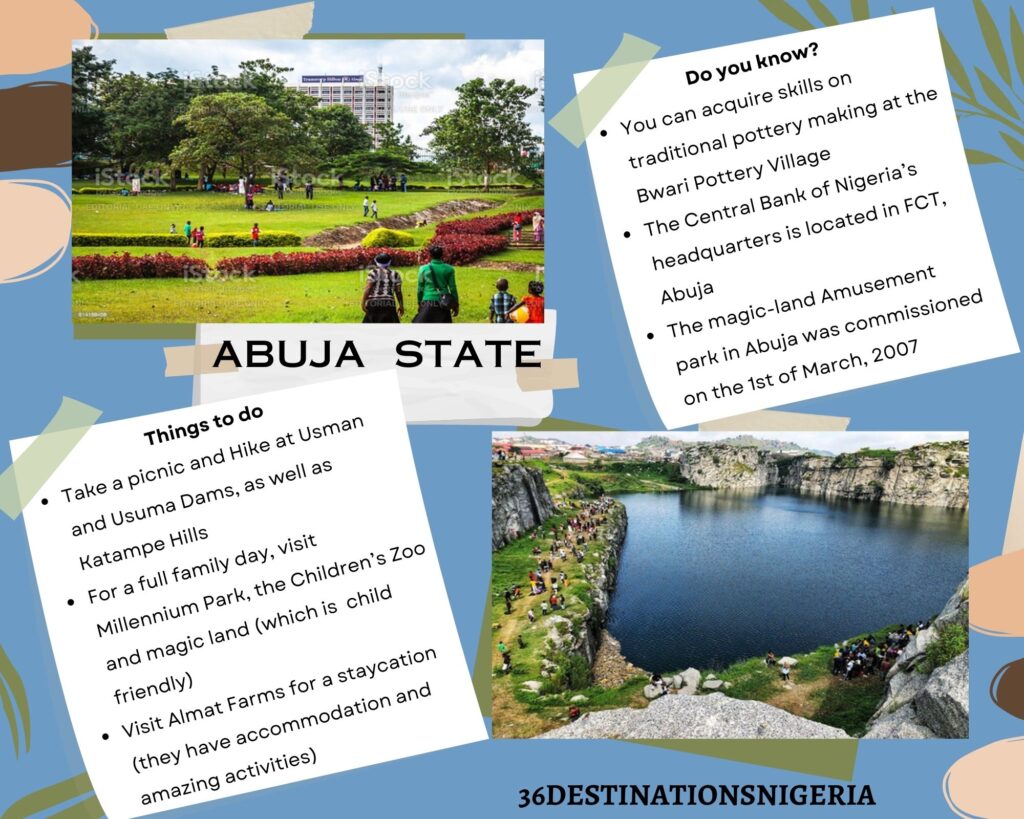Abuja is the capital and eighth most populous city of Nigeria, located in the centre of the country within the Federal Capital Territory. It is a planned city built mainly in the 1980s based on a master plan by Japanese architect KenzoTange. It replaced Lagos, the country’s most populous city, as the capital on 12 December 1991. At the 2006 census, the city of Abuja had a population of 776,298 making it one of the ten most populous cities in Nigeria (placing eighth as of 2006).
According to the United Nations, Abuja grew by 139.7% between 2000 and 2010, making it the fastest growing city in the world. As of 2015, the city is experiencing an annual growth of at least 35%, retaining its position as the fastest-growing city on the African continent and one of the fastest-growing in the world.
As of 2016, the metropolitan area of Abuja is estimated at six million persons, placing it behind only Lagos as the most populous metro area in Nigeria. Major religious sites include the Nigerian National Mosque and the Nigerian National Christian Centre.

The city is served by the Nnamdi Azikiwe International Airport. Abuja is known for being one of the few purpose-built capital cities in Africa, as well as being one of the wealthiest. Abuja is known for being one of the few purpose-built capital cities in Africa, as well as being. Abuja is Nigeria’s administrative and political capital. It is also a key capital on the African continent due to Nigeria’s geo-political influence in regional affairs. Abuja is also a conference centre and hosts various meetings annually, such as the 2003 Commonwealth Heads of Government meeting and the 2014 World Economic Forum (Africa) meetings.
LANGUAGES AND RELIGION
The indigenous inhabitants of Abuja are the Gbagyi (Gwari), with the Gbagyi language formerly the major of the region language, and others in the area being Bassa, Gwandara, Gade, Dibo, Nupe and Koro. The major population of the people practices Islam and Christianity.